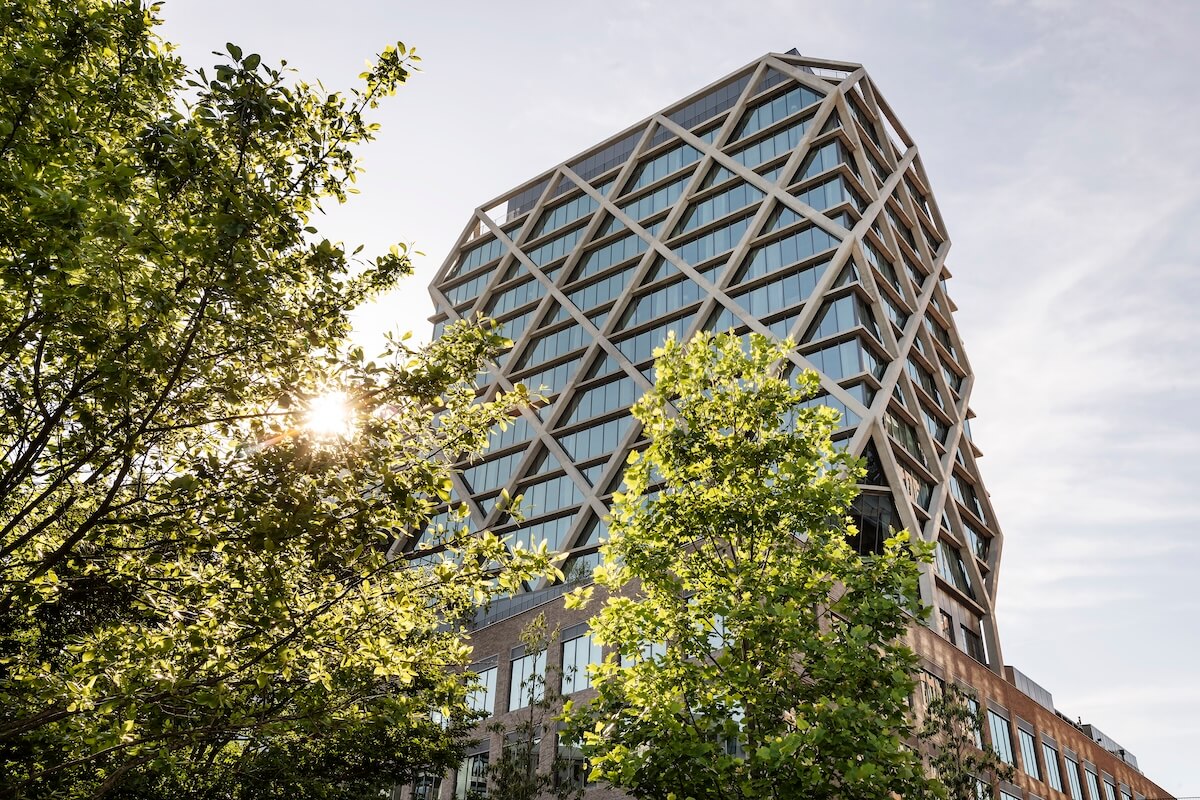It all started with Jamestown L.P., the real estate investment firm established in Cologne in 1983 to give middle-class Germans a chance to profit from the growth of U.S. cities. Over the years, Jamestown, which located its North American headquarters in Atlanta, has owned Manhattan’s Chelsea Market (which it sold to Google for $2.4 billion) and One Times Square, which it is currently revamping; Brooklyn’s Industry City; San Francisco’s Ghirardelli Square; and other high-profile properties. In 2011 it bought a 2.1-million-square-foot 1920s building, once a Sears Roebuck distribution center, in Atlanta’s Old Fourth Ward, a historically Black neighborhood about a mile northeast of the city center. Following a design and master plan by S9 Architecture, Jamestown embarked on a $140 million renovation to convert the red-brick building into Ponce City Market, a mixed-use complex that includes a “destination” food court.
Ponce City Market opened in 2014. Two years later, Jim Irwin, the Jamestown executive in charge of the project and an Atlanta native, left to start his own real estate investment company, New City. The firm first redeveloped the site of a Kroger across the street from the Ponce City Market; the success of that project gave it the inside track to purchase a nearby 12-acre parcel that was being deaccessioned by Georgia Power. That site adjoins the charming 17-acre Historic Fourth Ward Park and isn’t far from the Atlanta BeltLine, the linear park that encircles much of the city. New City was just a three-person company at the time of the acquisition, Irwin said. Still, it was able to raise the $31 million purchase price, primarily from family offices. New City made plans to put seven new buildings on the site.

Irwin calls Atlanta a “fast-moving, business-friendly, scrappy city known for doing things very fast but not always very well.” He set out to change that, he said, by “bringing in architects who had not worked in Atlanta before who would see things with new eyes.” He started off by hiring the estimable Seattle firm Olson Kundig to design a 1.1-million-square-foot commercial building covered in black glass and horizontal louvers. Then he turned to Morris Adjmi, known for a variety of bespoke buildings in New York and Washington, D.C., to design a 359-unit apartment building called Overline Residences. Modulated plans and sections artfully disguise the size of the brick building, which opened last year.

Adjmi’s second assignment was to create a 196-room hotel, christened FORTH. His firm, Morris Adjmi Architects, delivered a 16-story glass tower with exposed-slab edges wrapped in a diagrid exoskeleton. Irwin said the goal was to use structure to create a striking exterior that would also be “fun” from inside the building. So each room—including mine, which faced Ponce City Market from the 14th floor—has a view that is slightly obscured but at the same time greatly enlivened by the concrete crisscrosses outside.

The hotel, which opened in June, includes a resort-style swimming pool and fitness center meant to appeal not only to overnight guests but to locals via a member’s club and four restaurants that are already popular among Atlantans. The interior design is compelling—a stylish mix of midcentury modern with a few unexpected tableaux. Design choices include a museum-style diorama behind the concierge desk featuring a group of taxidermic foxes. Irwin called it “a whimsical mash-up of Wes Anderson and a natural history museum” and noted that the foxes were “ethically sourced.”
“We wanted to step into the Southern gothic a little bit,” Adjmi offered. His firm did most of the hotel’s interiors, while Method Studios and Stokes Architecture + Design handled the restaurants. The furniture selection throughout is beautiful but not clichéd—no small achievement in our Design Within Reach era.

Irwin plans to add three more buildings to the New City enclave, including another office tower by Olson Kundig and a residential building by the Berlin- and New York–based firm Barkow Leibinger. Both will feature ground-floor retail and landscaping by Brooklyn’s Future Green Studio designed to further the ascent of an already-booming neighborhood.
Fred Bernstein is the winner of a 2023 award from the American Academy of Arts and Letters for exploring ideas in architecture and the 2009 Oculus award from the New York chapter of AIA for excellence in architecture writing.

